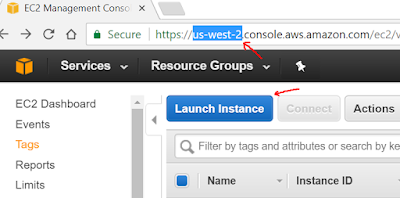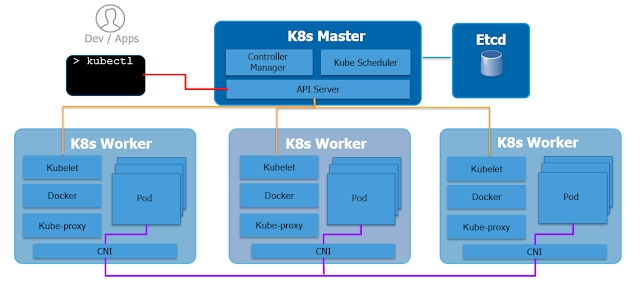PKS in Action
Now it is a good time to develop an interest in container
technology. Nowadays when we think about containers, Docker comes right to mind.
Containers is not a new technology. It has been available in Linux in various
shapes and forms for a number of years. The real merit of Docker is how super
easy it made to package and distribute software along with its dependencies
and hence its popularity. However many people started to wonder if it could be taken
one step further.
I like to compare Docker with VMware Workstation. It is
great to create and run multiple virtual machines in my laptop but if I want
those VMs to run a mission critical workload relying on a single server is not
a great idea. For production I would like to see the capability to withstand
hardware failures or at least to recover from them quickly. And that's why
VMware has products like ESX and vCentre.
We need the similar capabilities in the container world, in
other words we need to manage the orchestration of containers across a cluster
of systems. This is provided by what we call CO's (Container Orchestrators).
For a while that space has seen 3 main competitors: Mesosphere,
Kubernetes and Docker Swarm, and for a long time it was hard to discern who was
going to be the "VHS" and who was going to be the "Beta".
It seemed counter-intuitive to bet against Docker's own orchestrator called
Swarm, but the reality is that one clear winner is starting to emerge and that
is no other than Kubernetes, which was created by Google
So it is no surprise that, now that the dust is settling, we start to see solutions like PKS. This has been jointly developed by Pivotal, Google and VMware. The thing with Kubernetes is that it does a good job at orchestrating the containers themselves but it doesn't solve the problem of operating the VM's that underpin Kubernetes itself. That's where Pivotal expertise comes into play. Cloud Foundry (and now PKS as well) leverages BOSH to make day 1 (deploy) and day 2 (upgrade, HA and scale) operations a breeze.
So it is no surprise that, now that the dust is settling, we start to see solutions like PKS. This has been jointly developed by Pivotal, Google and VMware. The thing with Kubernetes is that it does a good job at orchestrating the containers themselves but it doesn't solve the problem of operating the VM's that underpin Kubernetes itself. That's where Pivotal expertise comes into play. Cloud Foundry (and now PKS as well) leverages BOSH to make day 1 (deploy) and day 2 (upgrade, HA and scale) operations a breeze.
So what is PKS? A turnkey solution to provision, operate and
manage enterprise-grade Kubernetes clusters. Besides BOSH and its proven benefits PKS
provides:
- NSX-T from VMware. Kubernetes is a bit limited in terms on network capabilities. NSX-T on the other hand provides micro-segmentation and a phenomenal range of other network capabilities
- Harbor from VMWare. It is an enterprise-grade container registry that prevents you from storing or deploying containers images if they contain security vulnerabilities.
- GCP Broker. It allows apps running in PKS to transparently access all the great offerings from Google Cloud API's
Anyway, that's enough talking for today. You came here to
watch PKS in action. The video below shows how to deploy Pivotal Ops Manager
and PKS. After you will marvel at how easy it is to spin up a Kubernetes cluster. The video has been produced by my colleague and Pied Piper
partner-in-crime Theo Crithary. Enjoy!!





Comments
Post a Comment